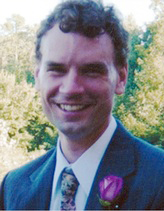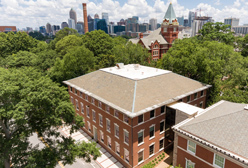Sponsored Research
"GDOT Local Beneficiary Analysis of TIA Project Expenditures: Establishment of Baseline Conditions and Expectations," a project by Thomas D. "Danny" Boston, professor in The Sam Nunn School of International Affairs, and Catherine Ross in the College of Architecture, has been awarded $164,662 by the Georgia Department of Transportation.
"Evaluation of the GDOT Small Business Program and Overconcentration in Certain Procurement Categories," by Thomas D. "Danny" Boston, professor in The Sam Nunn School of International Affairs, and Catherine Ross in the College of Architecture, has been awarded $152,866 by the Georgia Department of Transportation.
"Westside Communities Alliance (WCA): Building Capacity for a Healthy and Prosperous Urban Community," a project by Jacqueline J. Royster, Ivan Allen Jr. Dean’s Chair in Liberal Arts and Technology and Professor in the School of Literature, Media, and Communication, has been awarded $80,000 by the Ford Foundation through Enterprise Community Partners, Inc.
"Senegalese Curriculum Development for Georgia," a project by Michael Wiedorn, assistant professor, and Christophe Ippolito, associate professor, both in the School of Modern Languages, has been awarded $55,000 by the U.S. Department of Education.
Books by Faculty
Two books by Gerhard John Krige, Kranzberg Professor in the School of History, Technology and Society, have been published: NASA in the World: Fifty Years of International Collaboration in Space (Palgrave Macmillan, 2013) with co-authors Angelina Long Callahan and Ashok Maharaj, and Space Shuttle Legacy: How We Did It and What We Learned with co-authors Roger D. Launius and James I. Craig, part of the American Institute of Aeronautics and Astronautics Library of Flight Series (AIAA Press, 2013).
What Does Georgia Tech Think?
Selected Press for Ivan Allen College of Liberal Arts
|
Rosenberger on Hands-Free Devices
"They send the wrong message to drivers. It implies to drivers that these things are safe," said Robert Rosenberger, assistant professor in the School of Public Policy, on hands-free devices to be used in the car. "It encourages people not to be cautious." Source: NBC, November 27, 2013
Boston on Small Business Owners' Declining Optimism
"Small business owners are people who are really kind of out there at front line in terms of assessing the market, trying to put in place plans to deal with changes in the market and also being attuned to changes in market dynamics," said Thomas D. "Danny" Boston, a professor of economics in The Sam Nunn School of International Affairs, on a recent report from the National Federation of Independent Business. "So if something is going to happen in the economy, they’re going to know it first." Source: WABE, November 14, 2013
Laband on Blue Laws
"These laws are falling out of favor largely because of the increasing number of women in the workforce," said David Laband, chair of the School of Economics, on legislation prohibiting the sale of certain items on Sundays. "With both men and women working full time, Sunday has become a vital shopping day." Source: MarketWatch, November 13, 2013
Boston on Increasing the Debt Ceiling
"This would be the worst time to create the kind of uncertainty in the economy around that issue that we have experienced in the past," said Danny Boston, professor in The Sam Nunn School of International Affairs, on the debate centered around raising the debt ceiling. "The economy is moving forward now. It would create uncertainty, and the idea of having a downgrade of the credit rating would send shock waves through the market." Source: MarketWatch, November 13, 2013
Asad on the Portrayal of Muslims in Comics
"A 'good' depiction for me—not just of Islam, but any religion or culture or character—is one that is nuanced and multifaceted. It's not about creating an archetype to represent an entire group, it's not about 'getting' or understanding them," said Mariam Asad, a Ph.D. student in the School of Literature, Media, and Communication. "That, to me, makes a representation or a depiction feel cheap and exploitative, like it's a static platitude to be consumed and never considered again." Source: New Hampshire Public Radio, November 12, 2013
Bogost on Hyperemployment
"For those of us lucky enough to be employed, we’re really hyperemployed—committed to our usual jobs and many other jobs as well," said Ian Bogost, professor in the School of Literature, Media, and Communication, on the effect technology has had on our everyday lives. "We work increasingly hard for increasingly little, only to come home to catch up on the work we can’t manage to work on at work." Source: The Atlantic, November 8, 2013
Bolian on Breaking the Speed Record
"The hardest thing, quite honestly, was finding people crazy enough to do it with me," said Ed Bolian, alumnus of the School of Public Policy, on shattering the coast-to-coast "Cannonball Run" speed record. Ed and his crew made the transcontinental voyage in less than 29 hours, breaking the previous record by more than 2 hours. Source: CNN, November 3, 2013
February 6, 2014
11:00 am
February 6, 2014
11:00 am
February 10, 2014
4:00 pm
February 11, 2014
11:00 am
February 13, 2014
9:30 am
February 13, 2014
1:30 pm
February 14, 2014
11:00 am
February 17, 2014
4:00 pm
February 20, 2014
11:00 am
February 20, 2014
2:00 pm
February 24, 2014
4:00 pm
February 26, 2014
12:00 pm
February 28, 2014
9:00 am
February 28, 2014
2:00 pm
|
125 Years of Liberal Arts at Georgia Tech! School of Literature, Media and Communication Kicks Off Festivities; Founder’s Day is Coming Up March 13
Atlantans are often surprised to learn that Georgia Tech has a college of liberal arts and, even more so, that we’ve been part of the Institute’s curriculum since it opened in 1888. Yet, this year marks the one hundred and twenty-fifth anniversary of liberal arts at Georgia Tech.
English was the inaugural liberal arts course at Georgia Tech—one of the original six instructional subjects. Modern Languages were added in 1904 and the first social sciences courses in Economics in 1908. Our formation as a college came in 1948, and our naming as the Ivan Allen College in 1990.
Today, the Ivan Allen College of Liberal Arts (IAC) continues to teach courses that are essential for the success of Georgia Tech students, but we are distinguished in our own right for innovative humanities and social sciences research and teaching within a technological university.
A college-wide 125th anniversary celebration of our history and achievements will take place during the annual IAC Founder’s Day events on March 13. The day will feature a faculty panel defining research at the crossroads of liberal arts and technology, and a celebratory luncheon. The lunch program will include- remarks by President Peterson, a 125th anniversary video, a preview of a documentary about Mayor Ivan Allen, Jr. that is being produced for Georgia Public Broadcasting, presentation of the Allen Legacy Awards, and a dialogue, "One Georgia Tech: The Liberal Arts and 21st Century Innovation and Learning." The discussion will be moderated by Provost Rafael Bras. Participants will be Doug Hooker, IAC alumnus and chair of the Atlanta Regional Commission; Kenneth J. Knoespel, McEver Professor in Engineering and Liberal Arts; Bruce McEver, Chairman, Berkshire Capital Securities; and Nancy Nersessian, Regent’s Professor in Public Policy and Computing. Invitations will be sent to faculty, staff, students, and friends of the college. The Ivan Allen Prize for Social Courage will not be awarded this year.
Our quasquicentennial festivities kicked off in November in the School of Literature, Media, and Communication (LMC) which is home to the English department. More than 120 alumni, faculty, staff, former instructors, and guests shared memories and told stories of how their LMC education provides a firm foundation for their diverse careers.
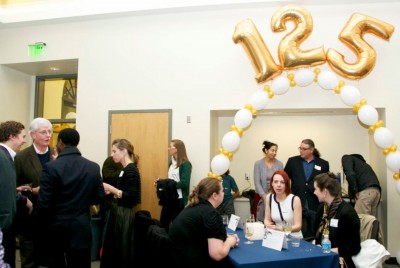
LMC Chair Richard Utz said, “Throughout the 125 years of its existence, the English Department has played a central role providing humanistic perspectives in an increasingly technological world. We have adapted our curriculum and school name many times to fulfill the needs of students, support Georgia Tech’s strategic plans, and innovate in a world in which disciplinary boundaries need to be continually rethought.”
Today, LMC is home to the nation’s first Ph.D. program in Digital Media. It also offers a unique codisciplinary B.S. in Computational Media (collaboratively run with the College of Computing) and a recently revamped B.S. in Literature, Media, and Communication.
The school’s faculty are thought leaders who serve as editors of refereed journals and book series all over the world. They include noted poets, teachers of multimodal communication, and specialists in science fiction, film, media studies, performance studies, literary and cultural studies
Additional celebratory activities throughout the year will engage both campus and public audiences. Watch the IAC website and our events and calendar announcements for more information about Founder's Day and other events.
LMC Photo by Rebecca Burnett
|
Transition in Leadership for School of Modern Languages
On January 1, 2014, Dina Khapaeva transitioned from her role as chair of the School of Modern Languages to a senior faculty position as full professor to focus on her research and teaching in Russian literature and culture. David Shook, associate chair of Undergraduate Studies, is serving as interim chair of the department.
Sh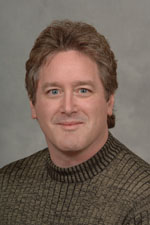 ook has worked in an administrative capacity since starting in the Ivan Allen College in 1990 as a Spanish instructor and coordinator of first and second year Spanish programs. In 1991, he joined the college as tenure-track faculty. He was instrumental in the development and implementation of faculty course proposals for the school’s innovative B.S. degree in Applied Language and Intercultural Studies (ALIS) which was inaugurated in 2010. ook has worked in an administrative capacity since starting in the Ivan Allen College in 1990 as a Spanish instructor and coordinator of first and second year Spanish programs. In 1991, he joined the college as tenure-track faculty. He was instrumental in the development and implementation of faculty course proposals for the school’s innovative B.S. degree in Applied Language and Intercultural Studies (ALIS) which was inaugurated in 2010.
Shook supervises the school’s Spanish instructors, heads advising activities for ALIS and the college’s joint major in Global Economics and Modern Languages (GEML), and co-advises for the International Affairs and Modern Languages (IAML) degree. For the past decade, he has represented Georgia Tech on the University System of Georgia Foreign Languages Academic Advisory Council.
Shook received his Ph.D. from the University of Illinois, Urbana/Champaign. His research interests are teaching methodology and curriculum development, grammar acquisition through reading, and language acquisition by using literature. His research papers appear in national journals, and he presents papers at local and national conferences. He frequently fields offers to produce and review textbooks, and is the author of the workbook ancillary to the successful first-year Spanish textbook Temas.
Read more about Dr. Khapaeva
Read more about Dr. Shook
|
IAC Welcomes New Advisory Board Member
Hubert R. "Herky" Harris is welcomed as a new member of the Ivan Allen College Advisory Board.
Mr. Harris is the owner of Harris Plantation, Inc. During a long career at Invesco, he served as chief executive officer, chief financial officer, CEO of Retirement, and as a member of the Board of Directors. He was the assistant director of the Office of Management and Budget during President Carter's administration. He currently serves on multiple boards including Aaron’s, Inc., SEI Mutual Funds Complex, the Board of Trustees for the Alexander-Tharpe Fund, the Board of Trustees for the Georgia Tech Foundation as a trustee emeritus, the Board of Councilors for The Carter Center, and as a trustee of the William Harris Homestead Foundation.
Read more about the Ivan Allen College Advisory Board here.
|
Lu Announced as Harvard Radcliffe Institute Fellow
Hanchao Lu, professor in the School of History, Technology, and Society, has been selected as a fellow of the Radcliffe Institute for Advanced Study at Harvard University.
Lu is among 49 artists and scholars from Harvard and around the world who, during the 2013–2014 academic year, will pursue projects across the arts, humanities, sciences, and social sciences. He will study the pattern of state and society relations in the People’s Republic of China (PRC) through the lens of everyday life in Shanghai during the first thirty years of communist rule.
Lu indicates that his project is historical by discipline, but also fundamentally interdisciplinary.
“This social and cultural history of Shanghai will have robust connections with sociology, anthropology, political science, literature, economics, and, to some extent, women’s studies. In that regard, Radcliffe’s multidisciplinary environment will be of great benefit to my research.”
|
Brown Receives Brook Byers Professorship
Congratulations to Marilyn Brown, professor in the School of Public Policy, who has been named a recipient of the Brook Byers Professorship by Georgia Tech’s Brook Byers Institute for Sustainable Systems.
The Brook Byers Professorship is the highest title bestowed at Georgia Tech for those engaged in sustainability related research and education. It provides resources to enable and enhance cross-disciplinary, collaborative research and education in sustainability, energy, and water. The five-year appointment includes $25,000 annually in discretionary funds.
A member of the Board of Directors for the Tennessee Valley Authority, Brown is a leading expert on scenarios for a clean energy future. The announcement of her appointment stated that, “using sophisticated energy-engineering models, she has brought a fact-based and authoritative perspective to energy sustainability discussions, influencing policy initiatives across the globe, the U.S., and particularly the South. Her research over the past several years has examined the impact of energy benchmarking to address information gaps in the real estate industry; trade-offs between electric and diesel urban delivery trucks; the potential for U.S. electrical efficiency improvements; the potential for co-generation to improve U.S. industrial competitiveness; and the evolution of smart grid governance. Through the Brook Byers Professorship, Brown will endeavor to expand the sustainability dialogue across campus as a means to establish Georgia Tech as a thought leader on technologies and policies for a clean energy future.”
|

|
Revolutionary Defense: Kosal's Year with the Army Inspires New Dimensions for GT's Military Partnership
We often hear about the extraordinary benefits of new biotechnologies and nanotechnologies, but these are also potential game changers for national security. How such cutting edge technologies could be exploited by those who intend harm and how the U.S. and its allies can employ them for defense is a focus for Margaret E.Kosal.
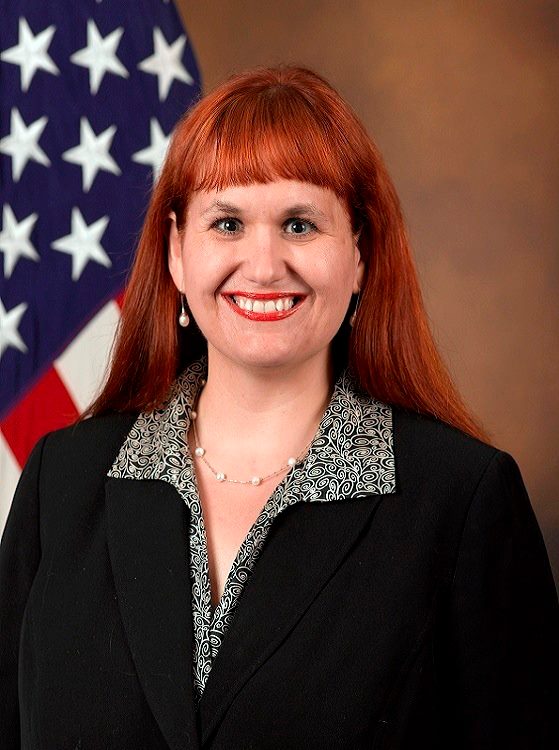 An assistant professor in The Sam Nunn School of International Affairs, Kosal recently returned to campus after serving as an advisor to the Chief of Staff of the U.S. Army General Ray Odierno as part of his inaugural Strategic Studies Group (SSG). The group was charged with conducting independent, unconventional, and revolutionary research and analysis to generate innovative strategic and operational concepts for land forces. An assistant professor in The Sam Nunn School of International Affairs, Kosal recently returned to campus after serving as an advisor to the Chief of Staff of the U.S. Army General Ray Odierno as part of his inaugural Strategic Studies Group (SSG). The group was charged with conducting independent, unconventional, and revolutionary research and analysis to generate innovative strategic and operational concepts for land forces.
Kosal spearheaded research focused on ten to twenty-five years in the future considering both the strategic and operational roles of emerging technologies.
“My team examined the challenges faced by the military and the limits of conventional forces,” explained Kosal. “We developed new concepts for design and deployment of U.S. ground forces and models for integration across joint, interagency, inter-governmental, and multi-national environments.”
A 500-page report that Kosal and her colleagues submitted to the Chief of Staff of the Army this past summer is unclassified, but has not been publicly released.
Kosal was the only academic among the SSG cohort, which included twenty hand-picked officers and a few civilians. She was selected for her skills in working and communicating across disciplines, bringing about strategic change, and building successful coalitions internally and with other federal agencies.
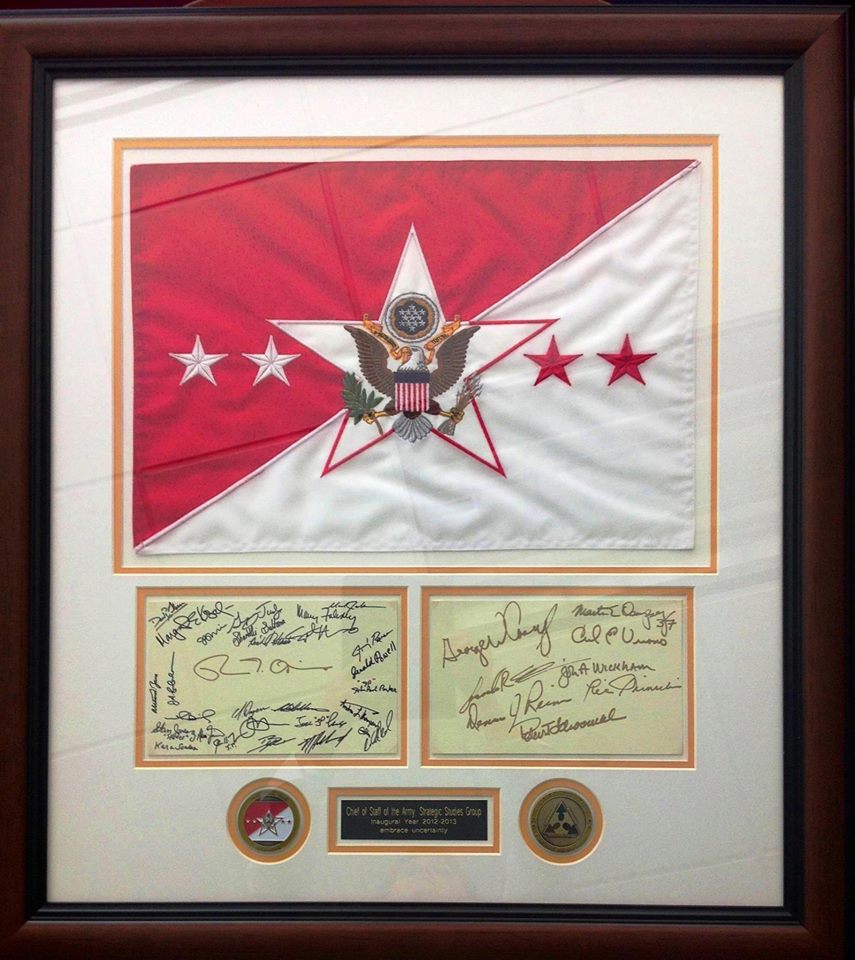
Inspired by the experience, Kosal has launched a new initiative to strengthen Georgia Tech’s partnership with the U.S. military in this arena. The initiative will explore research and educational programs aimed at equipping military officers with the tools and adaptive skills needed to analyze, understand, and respond to a changing geostrategic environment and domestic and adversarial technological pursuits.
“After more than decade at war, the U.S. military is entering a period of transition,” said Kosal. “The nation’s armed forces have the opportunity to pursue change in preparation for future conflicts. It is clear that we need to develop new tools and capacities for effective deterrence and response to existing and new threats.”
Kosal emphasized that a better understanding of the complex and interdependent relationships of defense science and technology is needed. The Nunn School, its faculty, and collaborating researchers are well-positioned to conduct research explaining how these phenomena intersect and potentially impact U.S. policy and national security.
Kosal is among the foremost experts on the weapons of mass destruction and the national security implications of emerging and dual-use technologies. Her research focuses on two often intersecting areas: reducing the threat of weapons of mass destruction and understanding the role of emerging technologies for strategy and governance. Work like Kosal’s facilitates understanding of the multi-faceted ways that technology affects military strategy and innovation.
|
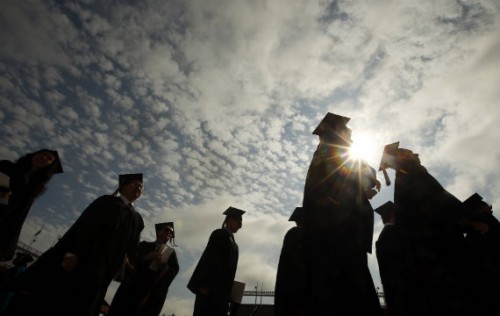
|
Making the Case for Higher Education: Walsh Study Cited by Brookings
A November article for the Brookings Institute blog built a metrics-driven case demonstrating the economic benefits of higher education to both the public and the individual.
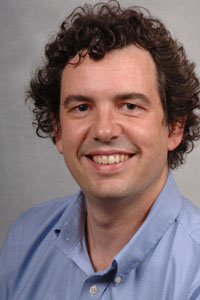 Among the ten studies cited was the 2007 Georgia Tech Inventors Survey, a project directed by School of Public Policy Professor John Walsh. Among the ten studies cited was the 2007 Georgia Tech Inventors Survey, a project directed by School of Public Policy Professor John Walsh.
“Those who most directly impact economic growth—inventors and entrepreneurs—also tend to be highly educated," wrote Jonathan Rothwell in the blog post. “A Georgia Tech survey of patent inventors found that 92 percent had a bachelor’s degree, almost exclusively in STEM (Science, Technology, Engineering, and Mathematics) subjects.”
The article specifically refuted commentary in the Chronicle of Higher Education by Arthur M. Cohen, Carrie B. Kisker, and Florence B. Brawer who argued that the vibrancy and productivity of the economy is unrelated to higher education.
|
Santesso Brings Humanities Perspective to Conference for Surveillance Experts Worldwide
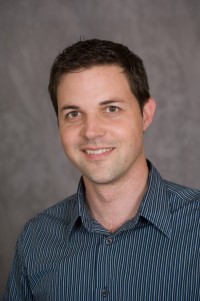
Aaron Santesso, associate professor in the School of Literature, Media, and Communication, was invited to a one-day symposium in New York, “Surveillance: What’s the Harm?” sponsored by the American Civil Liberties Union, Pen/America, and Fordham University’s Center for National Security.
The symposium was attended by approximately two dozen of the world’s leading experts on surveillance from fields including law, journalism, corporate technology, and the arts. It culminated in a standing-room only public forum, featuring, among others, Glenn Greenwald, James Bamford, Ariel Dorfman, and Bruce Schneier.
Santesso is co-author of The Watchman in Pieces: Surveillance, Literature, and Liberal Personhood (Yale University Press, 2013). Santesso, and his co-author, David Rosen of Trinity College, were the sole representatives of the humanities at the symposium, and spent much of the day offering historical perspectives on present-day debates. They made the case for understanding surveillance as divided between two distinct activities: observing people in order to predict future events and observing people in order to control their behavior. The division of surveillance into two modes—“empathy and coercion—is central to the argument of their book. Santesso and Rosen further argued that coercive surveillance is of particular concern in cases where the lines between public and private (especially corporate) activity are blurred. The area of greatest danger—which they will continue to examine in their work—involves the uses of surveillance technology in education.
|

|
An Economics Lesson at the Baggage Carousel
This op-ed by David Laband, chair of the School of Economics appeared in the Wall Street Journal on January 9.
This is a simple lesson in free-market economics, provided courtesy of the harsh winter weather of recent days in the eastern half of the U.S. Coincidentally, the annual meetings of the American Economic Association were scheduled to take place in Philadelphia, from January 3-6. My friend and colleague, Haizheng Li, flew in to Philadelphia late in the evening of Thursday, January 2, landing around 10:45. As he later told me, by then it was snowing heavily. Because of backed-up air traffic, the pilot was not able to park at their arrival gate for 40 minutes. After de-planing, Haizheng waited for another 40 minutes to retrieve his luggage.
The AEA conference is huge, with several thousand attendees. Under ordinary circumstances, the participating conference hotels are constantly running shuttles to and from the airport to pick up guests. Taxis are running nonstop. Not on this night.
While waiting to collect his luggage, Haizheng learned from a colleague that the hotel shuttle service was taking two hours or longer. Worried, he went out to the taxi line even before getting his luggage. Snow was falling, the line of prospective customers waiting for taxis was long—and there were no taxis in sight. It was near midnight. The taxi staff said it was unlikely any cabs would be coming in such bad weather.
Haizheng and a number of other passengers were facing the grim prospect of an uncomfortable night at the airport. The food vendors were all closed. Haizheng was tired and hungry—and he was scheduled to make a presentation at 8 the next morning.
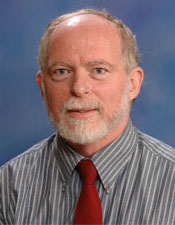 Unexpectedly, out of the night came a savior. A man walked through baggage claim asking whether any of the recently arrived passengers needed transportation to one of the downtown hotels. Haizheng didn't ask what the ride might cost, he just said yes. As it turned out, the man took six stranded passengers, plus luggage, to their hotels for $25 each. Unexpectedly, out of the night came a savior. A man walked through baggage claim asking whether any of the recently arrived passengers needed transportation to one of the downtown hotels. Haizheng didn't ask what the ride might cost, he just said yes. As it turned out, the man took six stranded passengers, plus luggage, to their hotels for $25 each.
No doubt in doing so he broke at least one, probably several, laws regarding passenger transport that are designed to prop up the local taxi cartel. Yet this man's action dramatically improved the lives of six individuals, each of whom undoubtedly would have been willing to pay much more than $25 to get from the airport to their respective hotels. Haizheng told me he would have paid a lot more.
There are those who argue that this unscrupulous individual took "unfair" advantage of these travelers in distress by charging them at all. Critics would say that he was a heartless "price-gouger." Really? The fact is, no one was offering to provide private transport for the stranded passengers at no charge. For that matter, the real price-gougers—government-regulated taxi companies—were nowhere in evidence.
I have no way of knowing how much it inconvenienced this man to find and transport half a dozen extremely stressed-out and grateful strangers in the wee hours of a bitterly cold, snowy winter night. He surely was inconvenienced. But the fact that his offer was made and followed through on suggests that he was compensated fully for his inconvenience and therefore happy to have been of service to his fellow man.
To that mystery driver: I applaud you. Your entrepreneurial spirit and actions embody everything that is beneficial about voluntary exchange among consenting adults. If you broke any laws, well, such laws benefit narrow special-interest groups and reduce social welfare. Your actions unambiguously enhanced social welfare.
Overzealous regulators and the cynical politicians who enable them are the ones who deserve scorn, not good Samaritans like you. I only hope that if I'm ever stuck at an airport in a winter storm, you or someone like you will come to the rescue.
David Laband, professor and chair in the School of Economics, researches and teaches a wide range of topics related to economics and policy.
View the original piece in the Wall Street Journal. Subscription required.
|
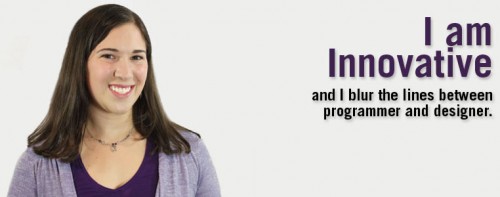
|
Undergraduate Profile: Alissa Hartenbaum
I have always considered myself a creative person. I've been writing stories since elementary school and creating 3D computer models since high school. The Ivan Allen College of Liberal Arts at Georgia Tech allows me to express my creativity in new ways.
My cross-disciplinary background is my biggest strength.
As a computational media major at Georgia Tech I can bridge the gap between technology and creativity. I have the ability to speak computer lingo to developers and then turn around and exchange thoughts with graphic designers. This is especially valuable to me as a user experience designer. I need to know how a product is going to operate at a technical level before I can determine how to design its abilities and interface.
Computational media is a mix of computer science, computer graphics, and communication.
I love how computers can be both technical and creative, and I wanted to find a way to pursue both. Most schools I looked at had computer science degrees separate from art degrees. They didn’t combine the two. The Computational Media Program in the School of Literature, Media, and Communication is unique in that it is interdisciplinary and hands-on. Every semester I have the chance to create and explore digital media in ways that I never thought possible. In the end, computational media was right for me because it combined both my technical and creative sides.
View the full profile here.
|
Matthew McIntyre, Former Digital Media Assistant, Passes Away
A remembrance by Janet Murray, professor in the Graduate Program in Digital Media
Matthew was hired in October 2005 as an academic professional to provide support for the Graduate Program in Digital Media in the School of Literature, Media, and Communication (LMC). During his time here he was, himself, a graduate student, finishing a Shakespeare dissertation at Georgia State. His time in LMC was marked by an exponential increase in program activity including the advent of the Ph.D. program, the growth of a one million a year research program, multiple searches for new faculty, multiple visiting scholars, yearly admissions processes involving hundreds of applications and maddeningly awful software systems, and—in 2010—a move of the entire program to new lab facilities which coincided with a transition to a new program director.
Matthew’s hard work, sweetness of temperament, and earnest concern for the welfare of others was a key factor in the success of the program through all these changes. At the same time as his job became more demanding, his family life was becoming exponentially busier, with his wife Ruth, whom he supported in finishing her own English dissertation, and four beautiful children. We were fortunate to have both Ruth and Matthew teach in the undergraduate program of LMC during these years, Matthew as part of his academic professional appointment, and Ruth for three years as a Brittain Fellow.
During this time the faculty and students of the program often saw the well-behaved, remarkably beautiful McIntyre children sprawled on the floor of Matthew’s office drawing, or sometimes being a little more audible and active in the corridors. Matthew handled all of these responsibilities with the same calm spirit and generous, good-natured dedication, though he often came to work without having slept the night before. Matthew finished his Ph.D. in 2010, and took a job at St. Pius X High School, which he found deeply gratifying. During the transition period when we were looking for his successor, Matthew came in after his school day, working two jobs to keep us all afloat. He did this in his usual uncomplaining manner.
For more than six years, Matthew McIntyre was a beautiful presence in LMC, and he will be remembered that way by everyone who knew him.
Obituary for Matthew McIntyre
|
|









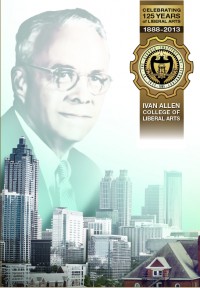

 ook has worked in an administrative capacity since starting in the Ivan Allen College in 1990 as a Spanish instructor and coordinator of first and second year Spanish programs. In 1991, he joined the college as tenure-track faculty. He was instrumental in the development and implementation of faculty course proposals for the school’s innovative B.S. degree in Applied Language and Intercultural Studies (ALIS) which was inaugurated in 2010.
ook has worked in an administrative capacity since starting in the Ivan Allen College in 1990 as a Spanish instructor and coordinator of first and second year Spanish programs. In 1991, he joined the college as tenure-track faculty. He was instrumental in the development and implementation of faculty course proposals for the school’s innovative B.S. degree in Applied Language and Intercultural Studies (ALIS) which was inaugurated in 2010. 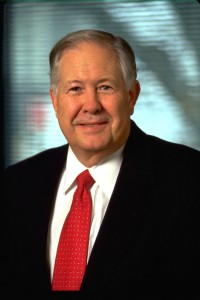
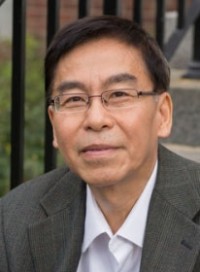
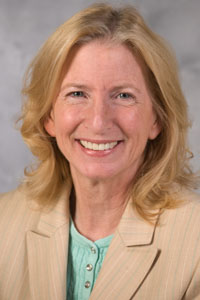

 An assistant professor in The Sam Nunn School of International Affairs, Kosal recently returned to campus after serving as an advisor to the Chief of Staff of the U.S. Army General Ray Odierno as part of his inaugural Strategic Studies Group (SSG). The group was charged with conducting independent, unconventional, and revolutionary research and analysis to generate innovative strategic and operational concepts for land forces.
An assistant professor in The Sam Nunn School of International Affairs, Kosal recently returned to campus after serving as an advisor to the Chief of Staff of the U.S. Army General Ray Odierno as part of his inaugural Strategic Studies Group (SSG). The group was charged with conducting independent, unconventional, and revolutionary research and analysis to generate innovative strategic and operational concepts for land forces.

 Among the ten studies cited was the 2007 Georgia Tech Inventors Survey, a project directed by School of Public Policy Professor
Among the ten studies cited was the 2007 Georgia Tech Inventors Survey, a project directed by School of Public Policy Professor 

 Unexpectedly, out of the night came a savior. A man walked through baggage claim asking whether any of the recently arrived passengers needed transportation to one of the downtown hotels. Haizheng didn't ask what the ride might cost, he just said yes. As it turned out, the man took six stranded passengers, plus luggage, to their hotels for $25 each.
Unexpectedly, out of the night came a savior. A man walked through baggage claim asking whether any of the recently arrived passengers needed transportation to one of the downtown hotels. Haizheng didn't ask what the ride might cost, he just said yes. As it turned out, the man took six stranded passengers, plus luggage, to their hotels for $25 each.
